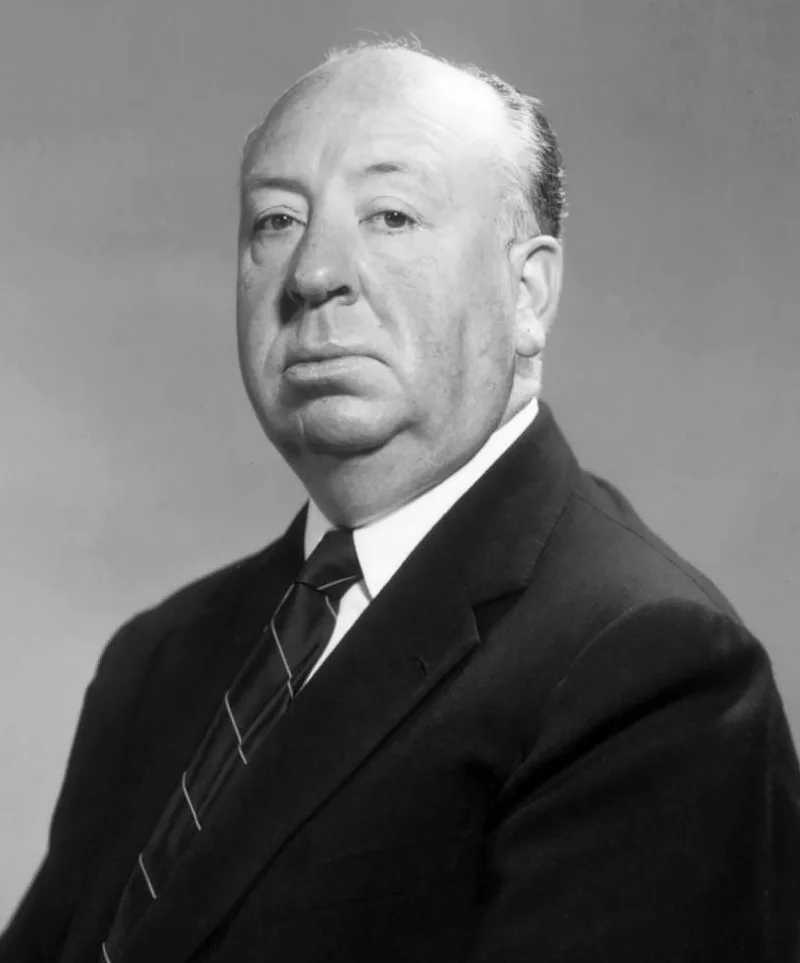Short Summary
Alfred Hitchcock was a renowned British film director and producer, best known for his mastery in the suspense and psychological thriller genres. Over his six-decade career, he directed more than 50 feature films, including classics like "Psycho," "Vertigo," and "Rear Window." His innovative techniques and narrative style earned him the title "Master of Suspense," making him one of cinema's most influential figures.
Early Life & Education
Alfred Hitchcock was born on August 13, 1899, in Leytonstone, Essex, England. He was the youngest of three children in a devout Catholic family. His father, William Hitchcock, was a greengrocer, and his mother, Emma, was a homemaker. Hitchcock's early education was at the Jesuit-run St. Ignatius' College, which he attended from 1910 to 1913. He later studied engineering and navigation at the London County Council School of Engineering and Navigation. His early interest in photography and cinema laid the groundwork for his future career in filmmaking.
Career Highlights
Hitchcock began his career in the film industry in 1920 as a title card designer for silent films. His directorial debut came in 1925 with "The Pleasure Garden." He gained recognition with "The Lodger: A Story of the London Fog" in 1927, which established his reputation as a suspense filmmaker. Moving to Hollywood in 1939, he directed several successful films, including "Rebecca" (1940), which won the Academy Award for Best Picture. His later works, such as "North by Northwest" (1959), "Psycho" (1960), and "The Birds" (1963), cemented his status as a cinematic icon.
Major Achievements
- Directed more than 50 feature films in a career spanning six decades.
- Pioneered the use of camera movement to mimic a person's gaze, creating a unique viewing experience.
- Received the AFI Life Achievement Award in 1979 for his contributions to the art of film.
- Produced and hosted the television series "Alfred Hitchcock Presents," furthering his influence on popular culture.
- His film "Psycho" was selected for preservation in the United States National Film Registry by the Library of Congress.
Famous Quotes
- "There is no terror in the bang, only in the anticipation of it."
- "Always make the audience suffer as much as possible."
- "Drama is life with the dull bits cut out."
Interesting Facts
- He made cameo appearances in 39 of his films.
- Hitchcock was knighted by Queen Elizabeth II in 1980, shortly before his death.
- He never won an Academy Award for Best Director, despite his immense influence on the film industry.
- Hitchcock had a lifelong fear of law enforcement and was terrified of being arrested.
- The shower scene in "Psycho" consists of 78 camera setups for a 45-second sequence.
Legacy / Influence
Alfred Hitchcock's legacy in the film industry is profound, influencing generations of filmmakers with his innovative storytelling and suspense techniques. His ability to craft tension and suspense has set the standard for thriller films. His work continues to be studied and revered, and his films are considered timeless masterpieces that have shaped the cinematic landscape.
FAQ
Q: Why is Alfred Hitchcock famous?
A: He is famous for his pioneering work in the suspense and thriller genres, directing iconic films such as "Psycho" and "Vertigo."
Q: Did Alfred Hitchcock ever win an Oscar?
A: While he never won an Oscar for Best Director, he received the Irving G. Thalberg Memorial Award in 1968 for lifetime achievement.
Q: What is Alfred Hitchcock's most famous film?
A: "Psycho" is often considered his most famous film, known for its groundbreaking approach to horror and suspense.
Q: How did Alfred Hitchcock influence modern cinema?
A: His innovative use of suspense, camera techniques, and narrative style have influenced countless directors and remain a benchmark for the thriller genre.












